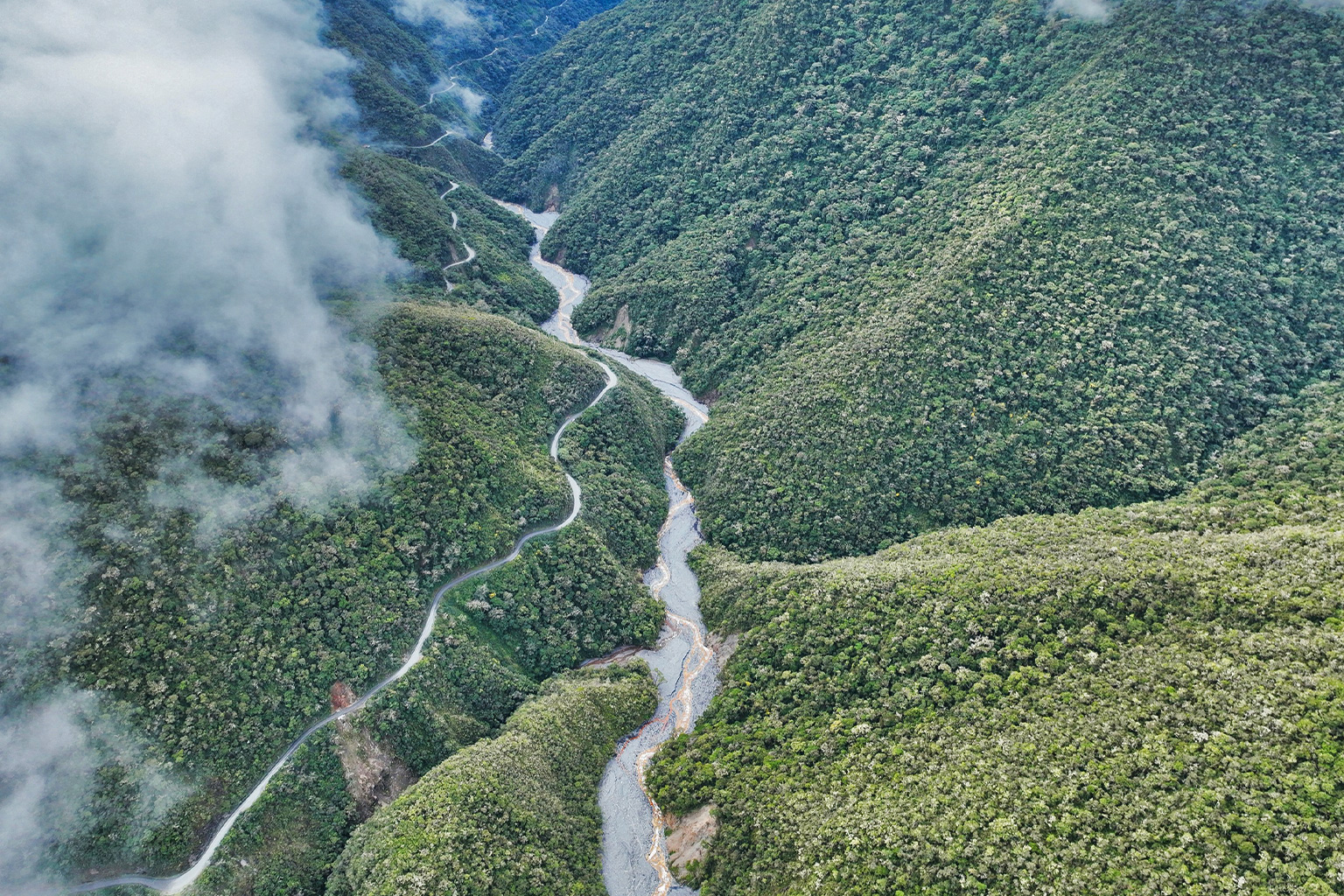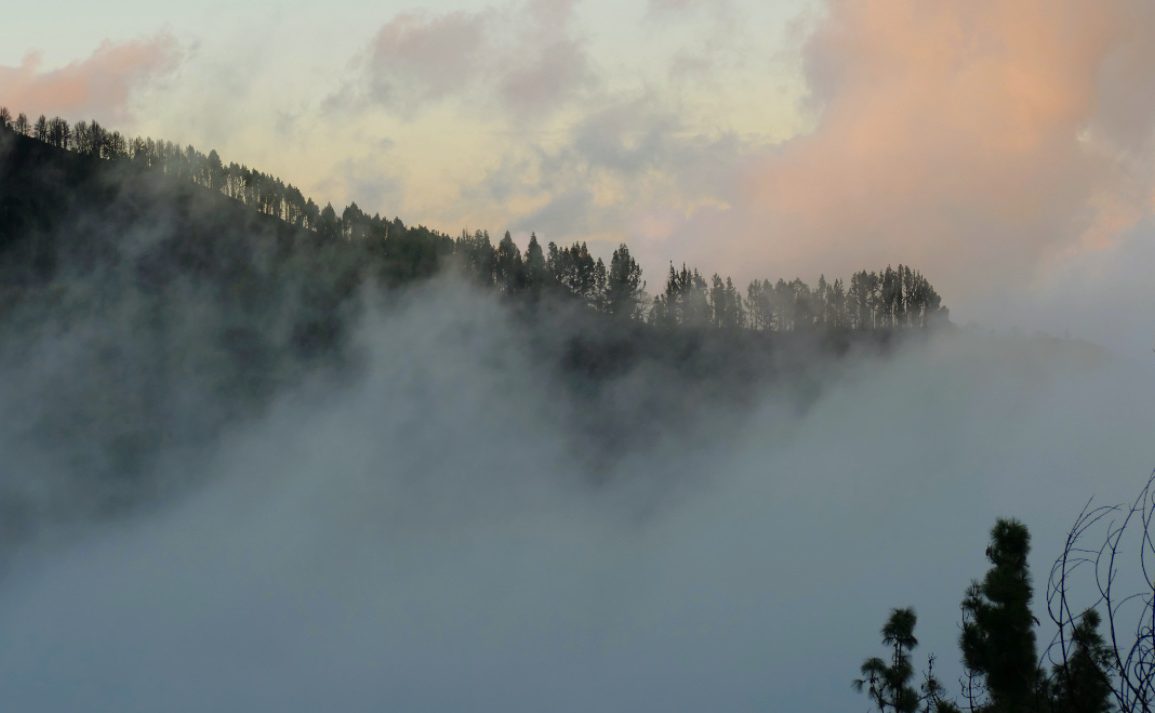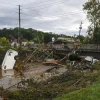Cloud milking, or fog collection, is a zero-energy method of capturing water from fog, initially developed in the Canary Islands to restore forests affected by fires and desertification. The project Life Nieblas, funded by the EU, leverages the moisture-rich “sea of clouds” that hovers over the islands. This project has expanded to support reforestation, provide drinking water, and irrigate crops in several countries.
By capturing water through structures inspired by the natural water-harvesting abilities of laurel trees, Life Nieblas has pioneered an eco-friendly, sustainable approach to water collection that reduces the need for costly infrastructure and minimizes environmental impact.
Initially, Life Nieblas used plastic mesh sheets to mimic the way laurel trees collect water, placing them where the wind could push fog through, causing water to accumulate and fall into containers below. However, strong winds damaged these structures, prompting engineers to design a more resilient system modeled after pine needles.
These new collectors use fine metal fronds that are durable, effective at capturing moisture, and simple to set up in remote areas. This approach allows for automatic, zero-energy water discharge, removing the need for additional power or emissions-intensive transport.
The technique has been adapted for reforestation projects beyond the Canaries, including in Garraf, Spain, where individual collectors protect young plants from herbivores and capture moisture from rain and dew.

Vicenç Carabassa from CREAF, the scientific head of the Garraf project, highlighted that orographic or mountain fog works best, with similar conditions found in the Mediterranean and certain North African regions. For instance, fog collectors in Chile’s Coquimbo province provide water for drinking and irrigation, while in Cape Verde, they yield 1,000 liters daily, supporting both crops and livestock.
Since the inception of Life Nieblas, fog-collecting technology has transformed reforestation efforts. In the Gran Canaria region, 35.8 hectares have been reforested with an impressive 86% tree survival rate, twice the success rate of conventional reforestation.
This project has restored forest ecosystems, enabling carbon capture with estimates of around 175 tonnes of CO₂ annually. The public can access information on building these fog collectors, which has generated interest globally, indicating the potential for broader applications of the technique.
Carabassa acknowledges that while cloud milking cannot replace desalination plants, it is a valuable, sustainable alternative for remote, arid regions where water is scarce and costly to transport.
Life Nieblas exemplifies how innovative, nature-based techniques can help conserve water resources, reduce reliance on fossil fuels, and aid reforestation efforts amidst increasing droughts in the Mediterranean and Canary Islands. As climate change exacerbates water shortages, fog collection offers a promising solution for eco-friendly water sourcing and forest recovery.

